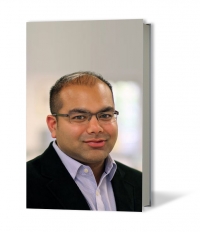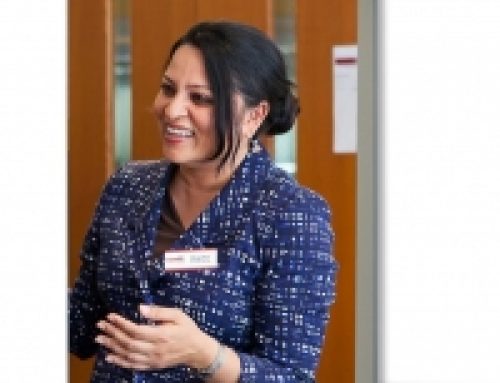Toby Chaudhuri NetIP (Network of Indian Professionals) Interview – Current State of Politics in US and India
‘NetIP Spotlight: Live Your Potential is a monthly show featuring experts on trending topics’
“Current State of Politics in US and India”
Jasbina Ahluwalia interviews Toby Chaudhuri
Jasbina interviews Toby Chaudhuri, Co-Founder and CSO of SocialxDesign.
Toby will discuss the following topics:
- Impact of Narendra Modi’s election on Indo-US relations
- Building blocks needed to develop a career in US politics
- Similarities between political campaigns and startup companies
A few topics Toby Chaudhuri addresses in this interview are:
- (4:19) Diversity in Politics: Its Rise
- (7:05) Engagement Scaling: The Need
- (9:33) Millennial Voters on the Rise!
- (12:22) 3 Characteristics of a Leader
- (15:34) Political Campaigns Like Startups
- (20:40) Narendra Modi Visa Issue
- (25:20) World News: Insufficient in US?
- (29:51) Engage in Politics: How To
_____
Toby Chaudhuri is a Strategist, award-winning consultant and Advisor to the White House. He helps visionary leaders and organizations inspire and engage the public, motivate action and achieve ambitious goals that benefit people.
He is a White House advisor on race-based initiatives and global democracy and governance campaigns, Strategist behind State Department, European Commission and major civic engagement campaigns and inspiring movements around the world.
_____
(00:48): Hello everyone. Welcome to NetIP Spotlight: Live Your Potential where we invite guest experts to speak on a variety of trending topics that matter to you. I’m Jasbina Ahluwalia, your host. I want to warmly welcome you to our show this evening.
I know everyone is crazy busy these days. I appreciate your investing time and joining us this evening. To give you a lay of the land, our guest speaker and I will be discussing his insights for about 20 to 25 minutes. After the discussion, you’ll have the opportunity to ask him any questions that you might have. With that said, lets’ jump in.
Today’s guest speaker is Toby Chaudhuri. Toby Chaudhuri is a strategist, award-winning consultant, advisor to the White House and co-founder of SocialxDesign. For 15 plus years, he has enjoyed working in strategic communications, high-impact engagement campaigns in politics and public affairs in DC.
He believes in helping visionary leaders of organizations inspire and engage the public, motivate action and achieve ambitious goals that benefit people. How does he do it? White House advisor on race-based initiatives and global democracy and governance campaigns, strategist behind the State Department, European Commission and major civic engagement campaigns and inspiring movements around the world. Welcome to the show, Toby.
Toby Chaudhuri
(2:19): Thanks for having me. I’m looking forward to it.
(2:23): It’s a pleasure to have you. What an impressive bio. How did you first get interested in politics?
Toby Chaudhuri
(2:30): I first became interested as a kid. My sister is a lawyer and much older than me. She’s very involved in public policy.
She gave me a quick education very early in life around activism. That’s what got me wound up in political debate, both in high school extracurricular and also in partisan politics later in college.
It’s always funny when people talk about what I do. Every time I try to explain it to my folks, they really don’t understand.
One time, I tried to take three hours, take my dad out to dinner and explain to him exactly what I do. At the end of the dinner, he was laughing. He finally said to me, “Are these all paid positions?” There is still a lot of confusion about it.
To widen the lens a little bit, as soon as I got involved in politics, I started working on political campaigns.
I managed races up in Massachusetts where I grew up. I became Al Gore’s Deputy Press Secretary when he ran for president. I worked in the Clinton White House doing communications. When George Bush became president, I flipped to the movement side. I worked for the party and several think tanks before I opened my own consultancy.
I’ve dealt with many political clients and took a lot of what we learned from politics and applied it to both the corporate and social NGO sectors.
_____
Diversity in Politics: Its Rise
(4:19): I’m fascinated that you were in the Clinton White House. Do you have any interesting stories or anecdotes that you can share from your experiences with the Gore campaign or while in the Clinton White House?
Is there anything that comes to mind that really left an impression on you?
Toby Chaudhuri
(4:39): There are plenty of stories. It’s marking the change between what Washington has been like between the Clinton years and the Obama years.
This is an extraordinary political moment for so many different reasons. One of them is this major trend that’s happening around us, which has been the rise of diverse America.
We see that change every day here in Washington in the halls of power.
Elaborating on Diversity in Politics.
_____
Engagement Scaling: The Need
(7:05): Absolutely. They have a voice. That’s very exciting. Is part of that the reason that led you to start your own company in terms of recognizing that trend with Indian Americans being more active?
Tell me what led you to start your company.
Toby Chaudhuri
(7:26): There is an interesting thing that happened. While we were working with the Obama White House early, there was a pretty clear challenge that the White House was confronting.
Given this rise in diversity, how does the federal government deliver federal services and protection to all kinds of constituencies?
I was observing that, all of a sudden, there was no mainstream in America. There are many streams.
Elaborating on Engagement Scaling: The Need.
_____
Millennial Voters on the Rise!
(9:33): It is almost seeded in the design concepts that are coming out of the Bay Area and Silicon Valley and marrying that with what’s been done in the past, doing it in a whole different way. That is very interesting.
Given your experience and expertise, you must have some perspectives about the impact of Narendra Modi’s election on Indo-US relations. Tell us about that.
Toby Chaudhuri
(10:07): That’s a good segue. A lot of the work that we were doing with the White House, and certainly what we’re doing with my company, is all about how we confront the complex challenges of society that are too big to handle. They’re too complicated.
This requires a unique approach to tackle those challenges. What we just saw happen in India is almost becoming a cliché to say this. It’s a historic election.
More voters went to the polls in India than has ever happened in any democratic experiment in the history of humankind.
In that, you had an extraordinary number of millennial voters.
Elaborating on Millennial Voters on the Rise!
_____
3 Characteristics of a Leader
(12:22): Let’s switch back to the US for a minute.
For the benefit of our listeners who aspire to a career in politics in the US, what do you feel are the building blocks that are needed to develop a career in US politics?
Toby Chaudhuri
(12:42): There are three characteristics that become important for running for office in any market.
- A leader has to be able to envision what a better future looks like.
- Second, a person must be able to figure out how they can drive change.
- Third, it’s important to be able to orchestrate creative teams.
Elaborating on 3 Characteristics of a Leader.
_____
Political Campaigns Like Startups
(15:34): What you just shared was very insightful. Your discussion of leadership talked about envisioning what a better future looks like, creating a sense of urgency and orchestrating the empowered teams.
It’s striking to me how that can be analogized to startups in the private sector.
I’m wondering what your views might be about any similarities between political campaigns and startup companies.
Toby Chaudhuri
(16:13): You can look at the Indian elections, where they just spent about $5 billion US dollars or the Obama election in 2012 when the US spent about $6 billion US dollars.
Each political campaign is like a startup.
- It’s moving in a very finite amount of time.
- It’s a large budget.
- It’s having to build a team that has a broad and deep scope.
- It has a very clear metric for success. It’s no different.
Elaborating on Political Campaigns Like Startups.
_____
(18:28): I appreciate you sharing your insights with us, Toby. I’m wondering if you have any last thoughts or take-home message that you’d like to share with our listeners before we jump into Q&A?
Toby Chaudhuri
(18:44): I think it would be great to open up for discussion. Let’s hear what people are thinking about.
What’s most fascinating about this moment to me, both in the US and India, is some of these extraordinary changes that are happening, not only in demographics and the way people are looking at themselves and their leaders, but also because of the changes that are happening in technology and our ability to communicate with one another as well as these changes in inequality in our country and India.
Economic wrote was the number one topic this time around, just like it is in the US and has been in several of the last elections. There are a lot of issues that everyday people are thinking about now more than ever, mostly around the economy and the world that need to be solved.
It’s really important to bring new approaches to solving those problems. It all starts with people getting involved. I think that’s probably the most exciting thing about both of these last elections that have happened on either side of the world.
(20:04): There is that engagement. People are putting their voices into the whole debate and really taking part in it. Everyone, now is your chance to ask Toby any questions that may have come up for you. I’m going to take a question now.
_____
Caller One
Narendra Modi Visa Issue
(20:40): Hi, this is Jay Kansara. I work with the Hindu American Foundation. I know Toby well. Hi, Toby.
Toby Chaudhuri
(20:49): Hey, Jay. How are you?
Caller One
(20:50): I’m doing great.
Narendra Modi is probably one of the most contentious figures in global politics.
The Hindu American Foundation didn’t endorse Narendra Modi, but we definitely felt that the conversation was very imbalanced here in the United States, especially around the issue of his visa.
There are certain organizations that were really lobbying the US Government.
They had a particular bend ideologically.
I haven’t gotten a clear answer from anyone at the State Department, in a public forum or anyone on the Hill when I asked, who is to say that these organizations won’t gain that type of traction again to bend the dialogue in another way that is clearly detrimental to US-India relations?
If you have any insight on that, I would really appreciate it.
Toby Chaudhuri
(21:53): It’s worth thinking about this in a couple of ways.
Jay, I want to make sure it’s clear that when I speak about this, I’m not speaking on behalf of the administration or any other entity except for myself.
I think the question is really about social issues, if I’m hearing it correctly.
I think there is no debate at this point, from my perspective, that the rule that kept Narendra Modi from coming to the US was administered strangely.
It was from this archaic Religious Tolerance Commission that was looking at anti-Christian activity around the world and Narendra Modi after some of the religious riots that were happening in Gujarat as an example to show that they were making a list that transcended Judeo-Christian faith. Narendra Modi was the only person on that list.
Elaborating on Narendra Modi Visa Issues.
_____
World News: Insufficient in US?
(25:20): We’re going to take the next question. Welcome, caller.
Caller Two
(25:31): Hi. Thank you. Toby, I was wondering, when the coverage in the US was going on about the elections, you mentioned that it was a historical event.
I felt it was rather sparse. I know there are quite a few comedians that made fun of that. It was barely being covered.
I was wondering what you thought about the limited amount of coverage in the US national news sources compared to something such as the Sterling controversy of the basketball team owner who made allegedly racist comments.
That was played over and over again. Do you think this was part of a lack of understanding in the US or a lack of interest? What other factors do you think might contribute to that?
Toby Chaudhuri
(26:14): When I was young and first getting involved in politics, the same sort of question came into my head.
I remember the day that Russia joined NATO, the Cold War construct, on that day instead of it leading headlines, all of the headlines were about a certain incident with a woman named Lorena Bobbitt.
I don’t know that this is a problem with the coverage of India specifically or if it speaks to a bigger question about how the media covers world events.
Elaborating on World News: Insufficient in US?
_____
Engage in Politics: How To
(29:51): We have one final question here.
Caller Three
(30:18): Hi. Toby, thanks so much for taking the time to answer our questions today. It was very helpful to hear your insights.
Earlier in the discussion, you mentioned the impact of the youth in Indian elections.
I’m very curious to know your insights on what the youth within the community can do to become involved in the upcoming US election aside from just going out and voting.
Toby Chaudhuri
(30:52): That’s a great question. I’ll tell you first how Indian Americans are getting involved.
I was talking earlier about how activists are changing the conversation out there. There are other ways that Indian Americans specifically are beginning to move the dialogue.
You are seeing many starting to lead in political fundraising. They’re starting to support candidates with their resources.
They’re challenging politicians who don’t support our values. We’ve seen this in a few different elections out there, both on the East and West Coast.
Indian Americans are mobilizing activists in their community. We’re recruiting and supporting strong candidates of our own. We should continue to be doing that.
Elaborating on Engage in Politics: How To.
_____
(35:06): Thanks for taking our listener’s questions, Toby. What’s the best way for our listeners to contact you if they want to contact you in the future?
Toby Chaudhuri
(35:17): Like everyone else, I’m on all the social media channels. You can find me there. My email address is toby@socialxdesign.com. I’d be happy to connect with anyone who is interested in going deeper or who is interested in getting involved in politics.
One of the most beautiful things about the time that I came to Washington, DC over 15 years ago is that there was a small group of South Asian Americans that, to this day, have created a network in town here. We would love to especially hear from our South Asian American brothers and sisters. For anyone who really wants to talk about any of these issues, I’d be happy to not only talk about it but also connect you to the people who are working on those issues here.
(36:17): Thank you so much, Toby, for being on and sharing your insights with our listeners.
Toby Chaudhuri
(36:23): You are absolutely welcome. Thanks for having this discussion.
(36:27): In case you joined us late or if you’d like to share this show with people in your life, a recording of this show will be sent out and additionally posted on Facebook. I appreciate everyone hanging out with us. Make sure to join us for next month’s show. We hope that you’ll be joining us at the 23rd Annual NetIP Conference this Labor Day weekend in Atlanta, where you will have the opportunity to meet Toby and many other interesting speakers. Goodnight, everyone.
_____
What do you think?
Would you like to add to the insights shared in the Toby Chaudhuri? Share your thoughts in the comments below.
_____





